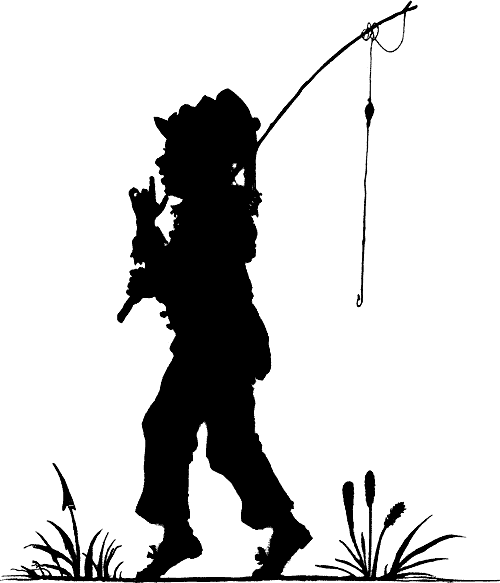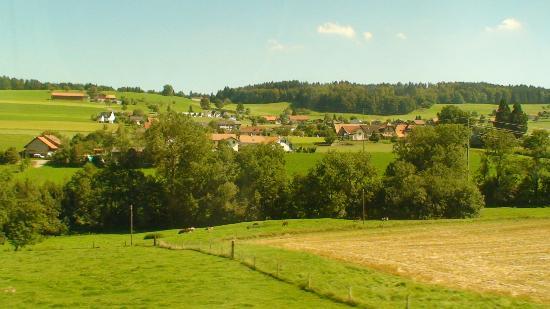Not time-travel, no. But decision-making brings the future into the present. Time-travel would be easier. We'd see how we liked the future, and decide accordingly. If we could get around the paradox, that is. You know, the idea that changing the past could eliminate the possibility of your own existence, meaning, you wouldn't have been born, and then you couldn't have gone back to change the past, so the past wasn't changed, which means that you were born after all, so you are alive and ready to travel back to change the past, with the capacity to eliminate the possibility of your own existence. Yes, it's confusing. That's why it's called a paradox. It strikes me that the paradox focuses on the past....I think future time travel is probably just as problematic (though some physicists suggest that the theory of relativity, their observations of time dilation (how people observe time moving slower for others), and some other things I don't understand well enough to be convinced suggest it's possible, but I remain unconvinced).
Still, it is future time-travel that I want. If I could travel to the future to see how things happen, and then could make my decisions accordingly (to insure or prevent the events I beheld), then I wouldn't need to travel back in time to fix things. I'd know - know! - what I should be doing in my present.
There's the rub: SHOULD be doing. Somehow, I have the sense that there's a great metaphysical right and wrong, not in the moral sense, but a plan for the world. Some call that Divine Providence, but if something is divinely ordained, then we can't blow it, and should have nothing to worry about. If everything that happens is according to Plan, then it will always be "all for the best." But even supposing that's true, it doesn't help me know what I should be doing. I write all this in the first-person, and I may be more decision-prone than most, but I know I'm not the only one who feels like there's a right decision and a wrong decision, even when choosing between good and good (more on that another time).
The "What Next" question applies to all aspects of life, but the right/wrong factor kicks in primarily with the important decisions. I don't think there is a metaphysical correctness to choosing tuna fish over peanut butter & jelly, even if it does have more protein and less sugar. I don't think there is a metaphysical correctness to choosing a black car over a red car, or any other color for that matter. But when I was choosing between a Toyota Corolla and a Honda Civic, I compared ever detail I could find, and weighed the pros and cons of each until the cows came home. What metaphysical right or wrong was riding on the Civic or the Corolla? In the end, I followed the money: the Toyota dealer gave a better deal, by about $1000, if I recall correctly (this was in 2000; I no longer have the car -- and it was blue).
The biggest right/wrong questions are of the "what should I do with my life" category. This college or that college (should I even go to college)? This major or that major? This guy or that guy (which one is the "keeper")? Job or grad school? Where to live? Have another child? (I don't have any children as yet, so this issue is not my own, but for some, it definitely falls into the "right/wrong" category of decisions for which a trip to the future would be beneficial) Yes, each of these decisions, and zillions more, merit independent consideration. But today, the point is that the pivotal decisions with serious implications suggest that one can choose wrong. If we knew the future, we'd be able to consider the actual consequences of the call, and not just the potential consequences. That could be scary, but also, such a relief!
As long as fruitful, productive, invigorating life continues, I will surely desire to know the metaphysically correct choice. Even when I don't consciously believe that there is a metaphysically correct choice. I'm not convinced that Plato's ideal world, an ideal plane of existence, exists, even if it is ideal. I just want there to be a "right" way to choose in whatever big decision faces me at a given moment! Is this just insecurity? I don't think so. I rarely second-guess my decisions, even the biggest ones, once they are made. I trust that by making my call, I've done the right thing -- or will make it right in my life.
Because the future is now. The challenge of choices is invigorating. Whether our choices shape our lives, or match what our lives are supposed to be according to a divine plan, the bottom line is that they are up to us. Whether our decisions are foreseen or merely observed, we live them, and we live with them. Which is why it's important to make them well, so that they are all for the best. Indeed, as we do so, we bring our now into the future, experiencing the choices we make.
(But I still think it would be nice to know in advance).


 I'd been thinking that I'm inclined towards "magical thinking," but I've discovered that I'm wrong.
I'd been thinking that I'm inclined towards "magical thinking," but I've discovered that I'm wrong.





